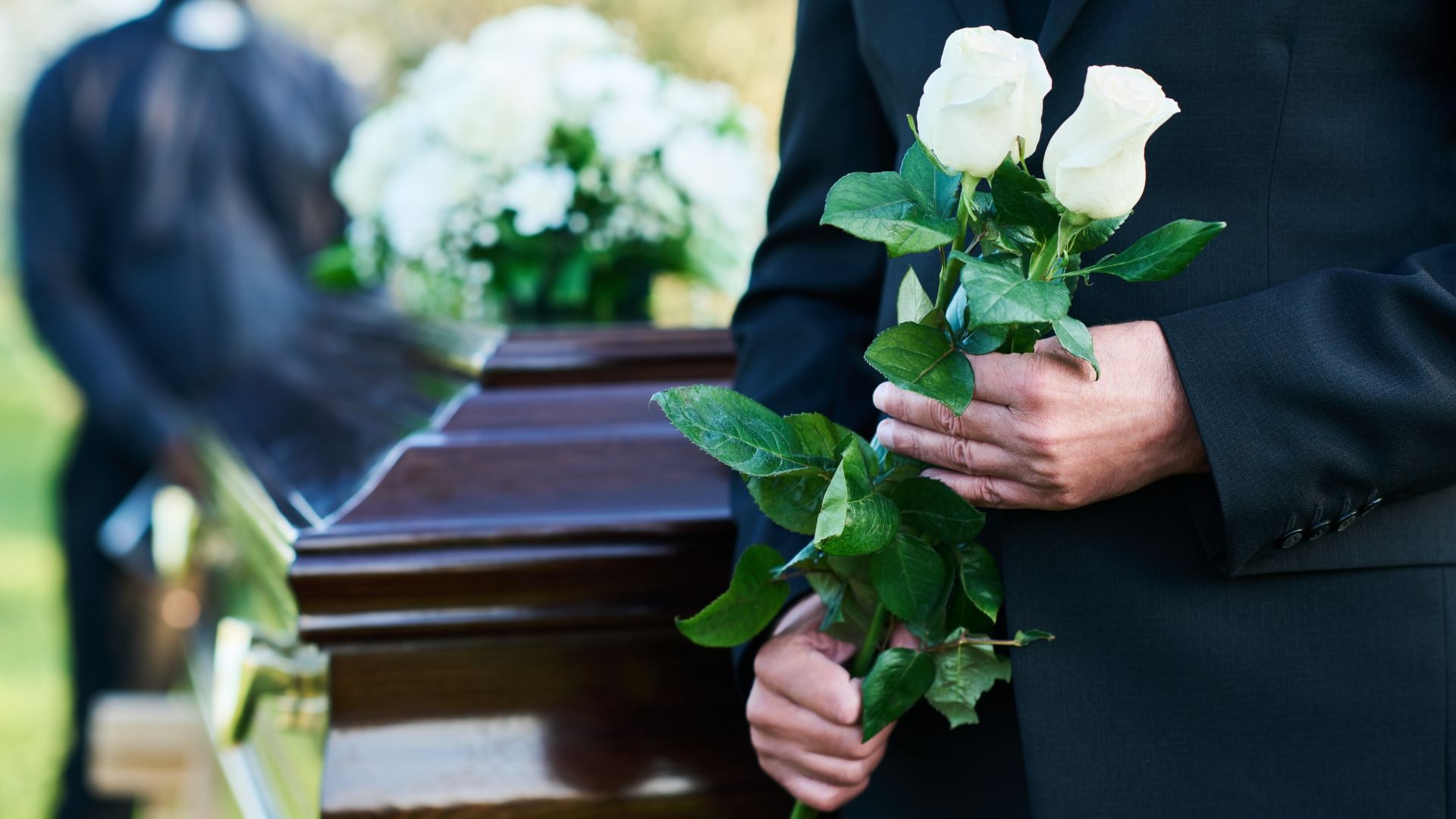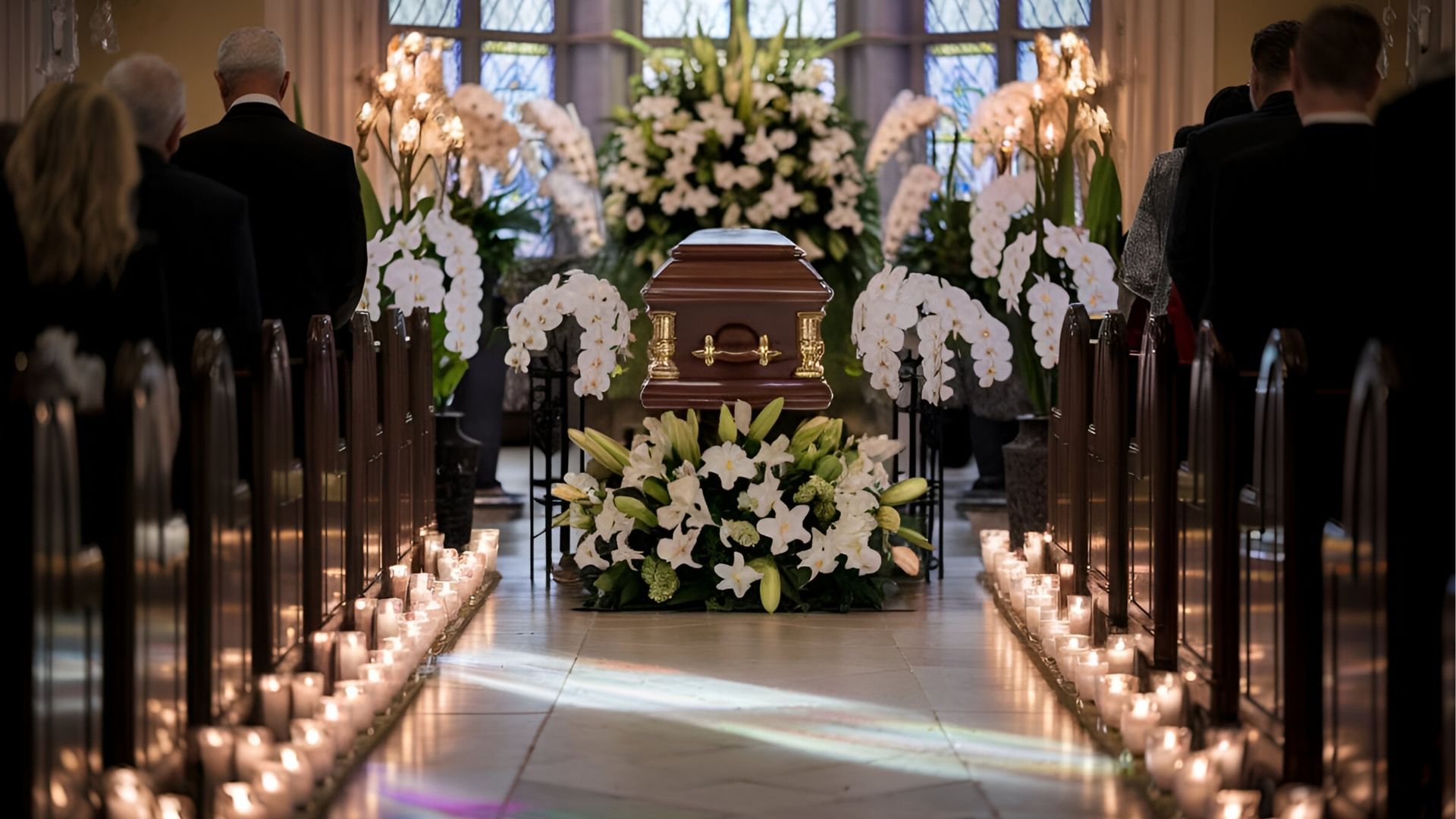Do you have to have a funeral?
As the cost of dying rises, many people ask whether a funeral is legally necessary. Find out the answer today.

When a person dies, does there have to be a funeral? It's a question that keeps coming up.
Maybe it's because the cost of dying continues to rise, with a simple funeral costing
on average
around £4,000. Perhaps it's the increasing popularity of alternative services like woodland burials, celebrations of life and living funerals.
It could even be the legacy of
David Bowie. When he died in 2016, as famous as ever, he opted for a
direct cremation
without any family or friends in attendance. His ashes were then scattered on the Indonesian island of Bali.
Whatever the reason, more and more people are investigating alternatives or dispensing with funerals altogether.
The short answer to the question "Do you have to have a funeral?" is no. The only requirements are that you register the person's death and put their body to rest. This could be through burial,
cremation or donation to medical science.
A funeral is a ceremony or service held soon after a person dies. It usually includes burial or cremation. But it's perfectly possible to have a simple, no-frills direct cremation – perhaps in conjunction with another kind of ceremony like a memorial service. Alternatives include a
natural burial, a living funeral or a celebration of life.
What is a direct cremation?
A direct cremation is a funeral at its simplest. The person's body is transported in a simple coffin in simple transport. There's usually no viewing, visitation or wake. There's not usually anyone in attendance, although some funeral directors will let a few people attend for an additional fee.
After a direct cremation, the ashes are returned to the family or scattered at a crematorium. Despite its simplicity, a direct cremation is a dignified and respectful process.
People choose direct cremations for two main reasons. The first is that it separates the cremation from the ceremony. This frees people up to arrange alternative ceremonies in their own time, be it a personalised memorial service, a living funeral within the person's lifetime or an ashes scattering ceremony.

The second is that direct cremations are much cheaper than traditional funeral services. On average, a direct cremation costs £1,500. A traditional funeral typically costs at least twice as much.
What is a celebration of life?
A celebration of life is a kind of alternative funeral ceremony held after someone dies. Unlike a traditional funeral, it can be held at any point after they die. This can remove some of the administrative stress that follows the death of a loved one.
Celebrations of life are often more celebratory than traditional funerals. They also tend to be more personalised and can be held in a venue that was dear to the person who died.
What is a living funeral?
A living funeral is an event, usually celebratory, for a person who knows they are reaching the end of their life. It allows them to gather together their loved ones and share memories.
People who hold living funerals appreciate that they can be more personalised than traditional funeral services. They can be arranged more flexibly and mean that loved ones don't have to organise a funeral when the person passes away. They can also be more cost-effective than a traditional funeral.
What is a natural burial?
A woodland burial is where a person is put to rest in a designated natural environment. This could be a woodland or other natural area.
Natural burials are simple and sustainable. The body isn't embalmed and only biodegradable materials are used. Even grave markers are kept to a bare minimum – if they're used at all.
A natural burial can be a suitable choice for somebody who loved nature or who was committed to sustainability in their lifetime.
What are the legal requirements when a person dies?

There's no law that says you have to have a funeral. It's entirely up to you whether you have one or not.
However, there are certain laws you must follow after a person's death:
- You must register the person's death within five days (eight in Scotland).
- You must dispose of the person's body (put them to rest).
- You must not show the person's body in a way that would "outrage public decency". This means the body must be covered in a coffin or shroud.
Legal considerations aside, there are other things that need to be done when a person dies.
You need to check the will to see if it contains any specific funeral requests or instructions. Did the person want a particular kind of burial, cremation or funeral service? Did they want to donate body parts or organs?
This stage of the process also involves figuring out the financial side of things. Did the person have life insurance or a funeral plan that can pay for the burial or cremation? This will have an effect on the funeral director you work with.
You also need to tell people that the person has died. This will include friends, relatives, employers, health professionals, financial bodies, government offices and even social media platforms.
Finally, the person's estate (money and belongings) must be dealt with. If there's a will, the person who died will have nominated an executor (the person who handles the estate). If not, the process is a little different. Either way, this is a crucial process after a person dies that comes with its own legal considerations.
Akshardham Funeral Directors is an independent funeral home based in London. We offer compassionate, step-by-step guidance to help you plan the funeral you want. Do you need our support to arrange a send-off that feels right for your loved one? Please call anytime on 020 8355 7876 – or read our guides on
what to do when a person dies.












